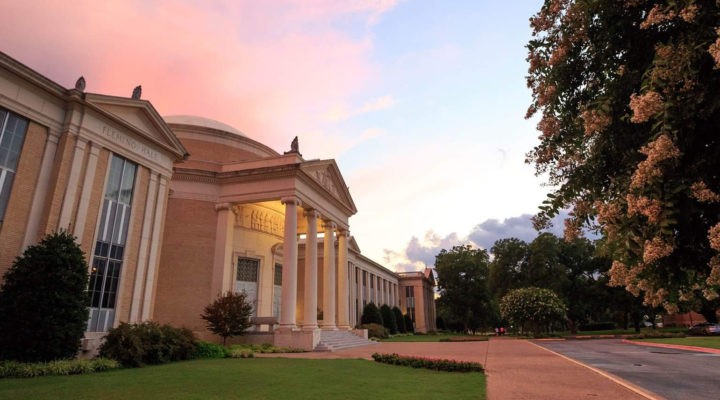What’s most interesting about the “Response to Sligar-Bunnell Allegations” document released by Southwestern Seminary trustee officers Friday afternoon, June 2, is the additional bits of insight into what’s been happening at the Fort Worth, Texas, school in the past year.
The report was produced by directive of the full board when it met virtually on Tuesday, May 30, to process concerns raised by two trustees, Aaron Sligar and Andrew Bunnell. By the end of that meeting, trustees had affirmed their own leadership and accused Sligar in particular of spreading lies.
The question no one has answered heretofore is why: Why would Sligar and Bunnell and perhaps others spin a narrative the majority of trustees believe not to be accurate? What motivation do they have?
That question remains unanswered, although some of the trustee leadership’s words hint at the continuing influence of former and current seminary employees with agendas to promote.
“Some of the trustee leadership’s words hint at the continuing influence of former and current seminary employees with agendas to promote.”
Most of what’s happened at Southwestern has been unknowable because all the significant trustee decisions of the past tumultuous year have been taken in executive session, meaning behind closed doors, and with precious little detail reported afterward.
Thus, the latest trustee report tells us several things of interest that had not been known publicly before:
The names of members of the trustee task force that investigated former President Adam Greenway. We now know John Rayburn, chairman of the trustee Business Administration Committee, chaired the task force. Other members initially were George West, Mike Bussey and Josh Grega. But in March 2022, five months after the task force was formed, Sligar was added.
How the task force reported to the board. After the April board meeting, a news release from the seminary offered few details on what the task force found and how it reported its findings to the board. BNG reported, based on information from sources close to the proceedings, that trustees had been given no written report but only an oral report. We now know there were multiple oral reports — one from each of the five members of the task force. Sligar’s “floor report” is the only one of the five that has been made public — and that happened through a leaked document.
What the task force decided not to do. The initial plan was to hire an outside firm to “audit the spending on the president’s home and office, as well as personal expenditures by Adam Greenway that were perceived to be inappropriate, such as first-class airfare for Dr. Greenway and his family and other spending on personal items for the former president,” the trustee report states.
However, after the initial work of the task force, and after receiving bids from external auditors, “the decision was made in early 2023 that it was unwise to expend additional resources to conduct an audit until there was reason to do so.”
“The decision was made in early 2023 that it was unwise to expend additional resources to conduct an audit.”
Sligar apparently believed a forensic audit was still warranted, which seems to be related to how he was added to the task force later.
Why trustee leaders are so upset with Sligar. Among those oral reports to the full board, Sligar’s report turned out to include information trustee leaders had asked him not to share because they believed Sligar was spreading unsubstantiated rumors. The report he had said he would give and the report he actually gave were materially different. Trustee leaders now speak of Sligar’s “evolving” presentation. Trustee leaders also are upset because Sligar and Bunnell questioned the integrity of the board leadership.
Greenway’s potential role in influencing the Sligar report. One of the juiciest allegations in the latest trustee report is the implication that Sligar was in indirect private communication with Greenway and may have softened his critique of the former president as a result, while also redirecting allegations against Greenway’s critics.
According to trustee leaders, Sligar’s planned report described spending by Greenway as “financial abuse,” “unnecessary and excessive,” “extravagant,” “out-of-control,” and “demonstrated an extreme freedom in the finances of the seminary.”
But the final report Sligar delivered to trustees April 18 “was substantially different than the one he provided to Rayburn on March 30. In the report he gave during the April 18 trustee work session, most of the references that portrayed Dr. Greenway in a negative light were missing. Further, he never disclosed the changes in his report to Rayburn, any other members of the Business Administration Committee, or any other task force members.”
Trustee leaders then charge: “It was later discovered that Sligar provided versions of his report before and during the April 18 meeting to a staff member who was known to have a close relationship to Dr. Greenway. In that context, Sligar said: ‘I will explain what I am doing. Don’t lose hope.’ Then, while the trustees were in executive session on April 18, Sligar sent another communication to the same staff member, who was not in executive session, with his report.”
The new report summarizes: “By taking this action, Sligar violated the trust of the board and the rules of executive session.”
What was left out of Sligar’s report. Trustee officers contend Sligar’s initial draft was highly critical of Greenway, but his final report was not. They gave two examples.
“Trustee officers contend Sligar’s initial draft was highly critical of Greenway, but his final report was not.”
In the March 30 version of his report, Sligar had written: “During the interviews and review of all documentation it became obvious that the culture did not allow for Dr. Greenway’s closest staff to approach him in regard to finances. Fear of retaliation, removal or even possibility of being blackballed from SBC leadership was a reality that some individuals had to deal with. This prevented the protection that the seminary needed to control the out-of-control spending.”
But the final report given April 18, trustee leaders said, changed entirely: “For undetermined reasons Dr. Greenway’s closest staff failed to approach him regarding finances.”
The trustee leaders then offer this interpretation: “That statement is untrue. Dr. Greenway’s staff did approach him to make him aware that financial conditions at the seminary were deteriorating and that changes needed to be made. Those warnings to Dr. Greenway exist in written form and have been reviewed by members of the task force and the Executive Committee.”
More questions than answers about Future Fort Worth. Sligar and Bunnell had implied in their email demanding the called trustee meeting that something could be amiss in a seminary vice president, Colby Adams, creating a nonprofit corporation using the address of a seminary-owned home as its headquarters. Adams is listed as the principal agent for Future Fort Worth, which includes two other Fort Worth businessmen as directors.
“What was not answered by trustee leadership is the nature of the nonprofit business that is registered at a seminary residential address but reportedly has no connection to the seminary.”
Since this happened soon after the announced $11 million sale of some seminary property that Adams was the lead negotiator on, the assumption was that Adams had formed this corporation somehow in relation to the sale of that or other excess seminary property.
But the latest report from trustee leadership says that’s not the case at all.
“Future Fort Worth, a private nonprofit organization, has not engaged in any business activity, including any business with Southwestern Seminary. Colby Adams has not realized financial gain, either directly or through Future Fort Worth, from the sale of any seminary real estate. Adams’ involvement in Future Fort Worth is personal in nature and has been fully disclosed to board and administrative leadership,” the statement says.
What was not answered by trustee leadership is the nature of the nonprofit business that is registered at a seminary residential address but reportedly has no connection to the seminary.
Also, trustee leadership rebutted allegations by Sligar and Bunnell that a seminary staff person had wrongly used employees’ personal information to acquire American Express credit cards, as well as allegations that endowment funds had been used for wrongly designated purposes.
The leaders call the “false allegations” made by Sligar and Bunnell “reckless.”
As of Friday night, June 2, none of the parties named in the trustee leaders’ report had made public comments on it.
Related articles:
Southwestern trustees affirm their leadership and repudiate two trustees who raised alarms
Southwestern Seminary trustees called to special meeting next Tuesday
Why we must be cautious about understanding what’s going on at Southwestern Seminary | Opinion by Mark Wingfield
City of Fort Worth to buy Southwestern Seminary housing units for $11 million
Here’s how to force SBC entities to be accountable to people in the pew about their finances | Opinion by Mark Wingfield
Eight months later, there still aren’t many public details on the financial and enrollment problems that led to Greenway’s departure from Southwestern | Analysis by Mark Wingfield
What happened at Southwestern and why does it matter? | Analysis by Mark Wingfield


